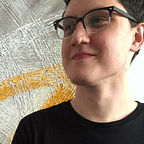Is It Possible for Life to Be easy?
Is life difficult? Of course, it is. Not all the time, but who could deny that things can get complicated? We feel over our heads, out of our depth, pulled into situations we dislike and don’t understand. We want better jobs and happier relationships, and often find these things easier said than done.
One day, we’re on easy street, carefree and content, as glory is served to us on a silver platter (even if our version may look quite humble). On the next, a slew of complications crops up, and we realize we’re in a sticky situation, with no clear way out, and no prospects. We feel like Luke at the end of Star Wars, with one shot at the Death Star, tailed by Darth Vader, and no backup in sight. Life is difficult.
The Great Way is not difficult
But not according to Seng-ts’an, the Third Chinese Patriarch of Chan Buddhism (later known as Zen in Japan). In the 6th century, he wrote the following words in the Hsin-hsin Ming: Verses on the Faith-Mind (translated by Richard B. Clarke):
The Great Way is not difficult
for those not attached to preferences.
If ‘the Great Way’ means life (or whatever is happening), then Seng-ts’an’s words fly in the face of our own experience. Life does seem to be hard, but Seng-ts’an says it doesn’t have to be.
Is it because we are “attached to preferences”? Is the secret to leading an easier (“not difficult”) life not being attached to preferences?
How do we detach?
First, we must consider what it means to not be attached to preferences. Notably, he does not advise us to get rid of all our preferences. Preferences for Seng-ts’an still exist — just as they do for any of us. We like certain things and dislike others. This, apparently, is not the problem.
So what does it mean to be attached to our preferences? To find out, we conduct an experiment: we try to step back from our ambitions, our desires. In other words, we act like we are detached from our preferences. When we want something, we attempt to impose a feeling of ‘not caring’ if we get it or not. We look at our own mind as someone else’s, like a movie on a screen.
There’s only one problem: it is hard work to try to detach. Our experiment doesn’t seem to make life any easier.
That’s when it hits us: perhaps we are not really detaching from our preferences. Perhaps the desire to be detached is simply another preference! Instead of detaching, we have attached to only one desire (the desire to be detached) and left the others behind. But it is still attachment. Damn! What do we do?
No way out
The answer may come if we deeply see that there’s nothing we can possibly do. We cannot detach from our attachments because in doing so we are attaching to detachment. There’s no way out.
But, as the saying goes, ‘when you are in an impasse, there is an opening.’ If we truly have arrived at the impasse — the point of throwing our hands up in defeat — then detachment happens by itself.
When we fully see that there is no possible way to detach, we find ourselves suddenly at peace. Our preferences are no longer all-important. They are circumstantial and ever-shifting: today we want one thing, tomorrow another. We no longer rebel against this restless searching. Without trying, our preferences and decisions come and go as they will.
We see that Seng-ts’an was not telling us what we should do, but rather stating a fact:
The Great Way is not difficult
for those not attached to preferences.
Perhaps we do not have to change ourselves. We are still a chaotic tangle of instinct and impulse, but now we are free from the feeling that we need to be different. Life continues to be complicated. But, it is no longer a problem.
Clarke’s translation of the Hsin-hsin Ming.
Thanks for reading. If you enjoyed, please hit the ♥ button so others can find this article.
Follow me for more pieces like this one. https://medium.com/@rossjedwards
